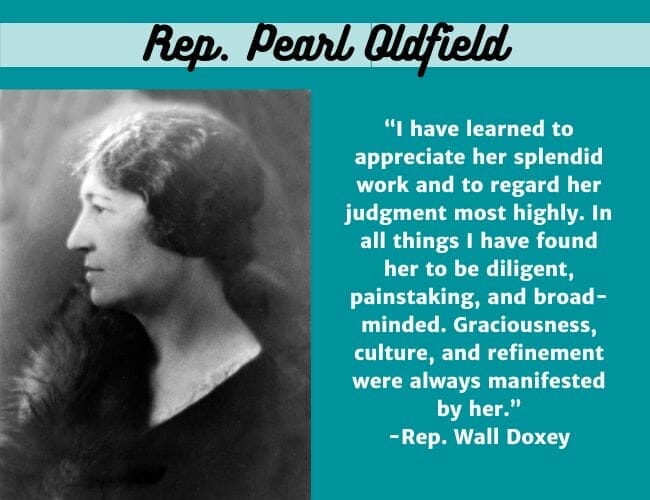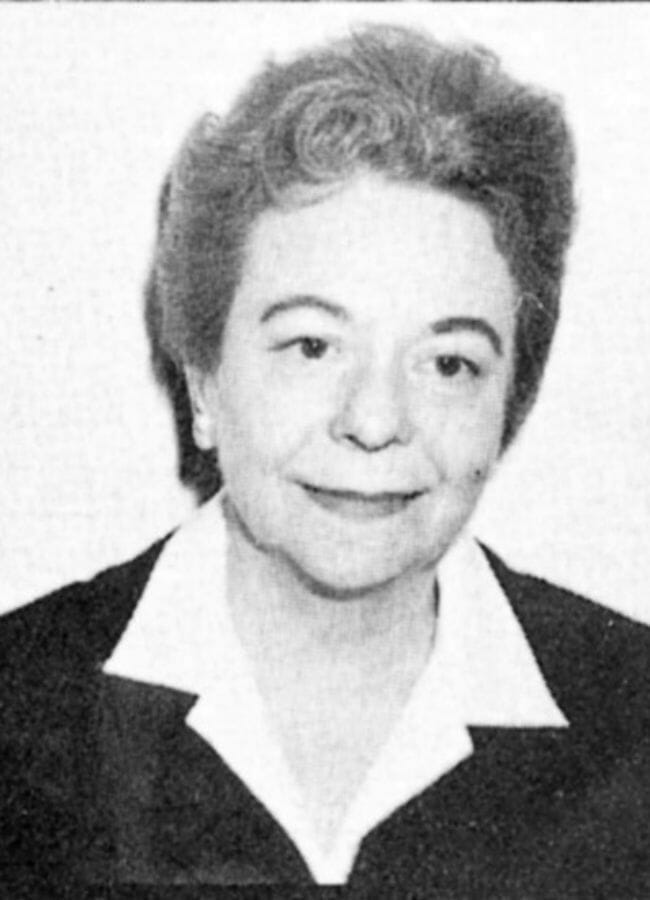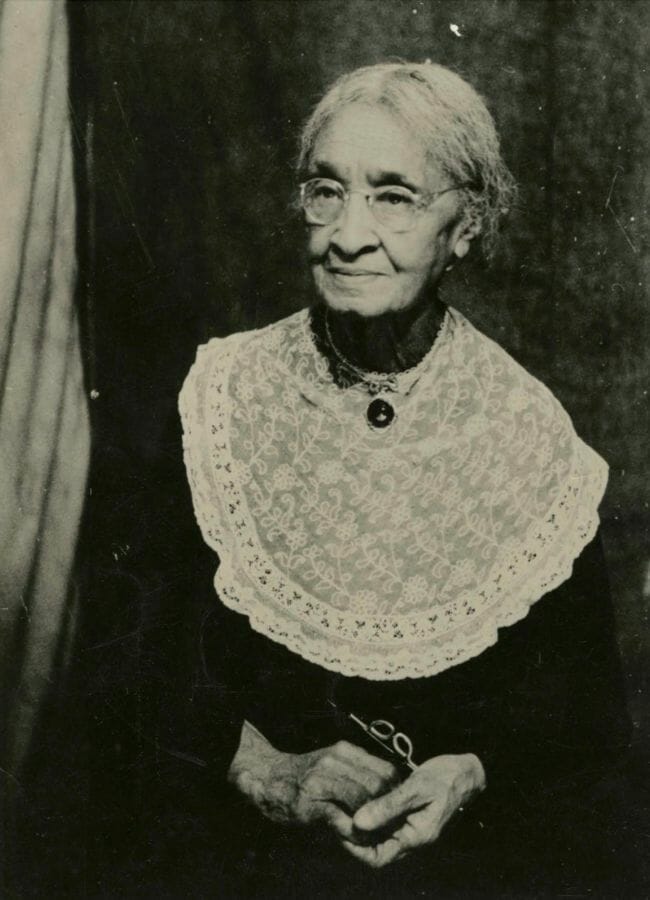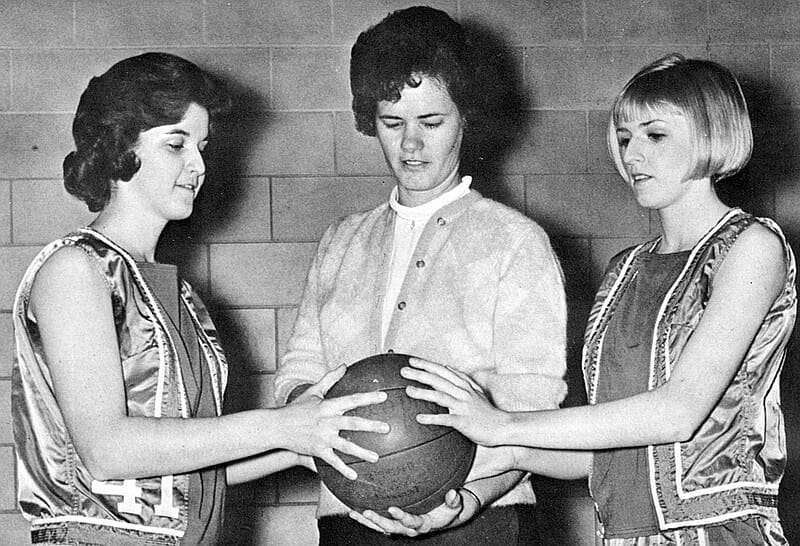

Uh oh...
It appears that you're using a severely outdated version of Safari on Windows. Many features won't work correctly, and functionality can't be guaranteed. Please try viewing this website in Edge, Mozilla, Chrome, or another modern browser. Sorry for any inconvenience this may have caused!
Read More about this safari issue.

There is a long list of women from our state who have shattered the glass ceiling. As we celebrate Women’s History Month in March, let’s discover the stories of six of these Arkansas women.

Pearl Oldfield
Pearl Oldfield grew up near Cotton Plant as the daughter of farmers. She attended grade school locally and Batesville for high school. She attended Lyon College (previously Arkansas College) but left in June 1901 when she married William Allen Oldfield. In 1908, Arkansans elected him to the U.S. House of Representatives, and the couple moved to Washington, D.C. William served for 20 years as a Representative and won the election in 1928 to keep his place.
Two weeks later, he tragically died, and Arkansas experienced a first – two seats were now open simultaneously, and Congress was still in session. The State Central Committee announced there would not be another election, and his wife, Pearl Oldfield, would complete both terms. Her nomination into this role made her the first Arkansas female elected to the U.S. House of Representatives. Pearl served in Congress for two years, introduced 28 bills, served on three House committees, and addressed Congress three different times, with the first right after her new role as she represented the drought conditions in Arkansas at the cusp of the Great Depression.

Dorathy N. McDonald Allen
Like Oldfield, Dorathy Allen fulfilled her late husband’s expired term after he died. She continued to serve this role through two more elections. Allen served in the 64th – 69th General Assemblies by running for reelection in the 1966 and 1970 elections without opposition.
Dorathy was born and raised in Helena as the daughter of a homemaker and lumberman. Financial struggles kept her from attending college, but she did not let that hold her back. Instead, she took courses at a secretarial college in Memphis. She worked her way through media roles, becoming a section editor of the Helena World and leading the advertising department of the East Arkansas Record. After marrying Thomas Jacob Allen, the couple moved to Brinkley and owned and published the Citizen.
In 1944, she became involved with the Miss Arkansas Pageant. After observing the titleholder’s role and acknowledging it as an ambassador for the state, she revamped the program and earned the name “Mother of the Miss Arkansas Pageant.” The respect she gained in this role proved beneficial as she ran in July 1964 to fill her late husband’s Senate seat. Her time in office marked a challenging part of Arkansas history, and she was involved in many controversial legislative movements. While in office, she was the only female in the Arkansas State Senate.

Annie Zachary Pike
Born in a tough historical time for African Americans, Annie Ruth Davidson used every opportunity she could maneuver for education and made a successful life for herself born out of a farming community in Phillips County. After attending a co-educational boarding school and Nursing School, Davidson returned to Arkansas and married Grover Cleveland Zachary, a man 40 years her senior. The Zacharys won a “Plants to Prosper” contest that set their tone as agricultural experts and landowners in Phillips County.
When Grover Zachary suffered a stroke that paralyzed him, Annie took on many of the day-to-day land management responsibilities. She confirmed their profitability and expansion by adopting new technologies, operating innovatively, and using local black extension agencies’ services. Through her ability to educate herself in agricultural methods, her farm thrived.
After she served his election campaign, Gov. Winthrop Rockefeller appointed Annie to the Arkansas Welfare Board, providing a first role on a state board for African American women. Her reputation as a “Black lady who challenged the system, who cared about the poor, the needy and the indigent” caught the attention of President Richard Nixon. In 1969, he appointed her to the White House Conference on Aging, where she became a member of the Technical Committee on Nutrition, representing issues among the elderly in the South.
Pike still lives on her farm in Marvell and, for more than 50 years, was actively involved in the Republican Party leadership and state roles and boards, garnering respect for her representation of underserved populations.

Charlotte “Lottie” Stephens
Charlotte Andrews Stephens was the first African American teacher hired by the Little Rock school district, a significant milestone with an 80% minority enrollment and over 50% marked as economically disadvantaged. Stephens taught for 70 consecutive years in the district before her retirement in 1939. In 1910, the school district dedicated Stephens Elementary in her name, the only school bearing a woman’s name for over 50 years.
Stephen’s parents were educated slaves and valued her education with opportunities, while her parents worked a job “in town” away from their home plantations. With Little Rock occupied during the Civil War, many enslaved people experienced freedom for the first time. Stephen’s father, the first pastor of Wesley Church, used the building as a one-room schoolhouse for freedmen’s children. This access gave Stephens her first opportunity to substitute for her teacher at age 15. Through these efforts, the Little Rock School District saw the importance of expanding to cover this portion of the community.
Stephens worked and paid her way through Oberlin College, returning throughout her studies to work in her home district, a year at a time, to save money and complete her teaching certificate and educational credentials.

Photo courtesy of SAU Sports Information
Dr. Margaret Downing
A pioneer in women’s athletics, Margaret Downing, is attributed with establishing women’s athletics at Southern Arkansas University. While she came to coach the Riderette Basketball team, she built impressive programs in volleyball, golf, track and field, swimming and diving and fast pitch softball, ultimately serving as Women’s Athletic Programs Coordinator, a like-minded athletic director style position.
Downing is attributed for driving to establish women’s athletic programs across Arkansas. Additionally, she used national platforms to accomplish similar endeavors to “better” women’s programs through the 60s, 70s and 80s. She coached US Pan-American and World Tournament basketball teams, served on the U.S. Olympic committee for women, the U.S. National Basketball Committee, the International Basketball Committee for women and was a multi-term president of the U.S. Olympic Committee for Women’s Basketball.
Downing was a strong advocate through the Title IX process to place collegiate women’s athletic programs on the same footing and competitive level as men’s sports.
Into the Future
On Jan. 10, Sarah Huckabee Sanders became the 47th Governor of Arkansas, the first woman to hold the position and the youngest Governor in the nation. Sanders was the White House Press Secretary from 2017 to 2019. She was only the third woman to serve in that role and the first mom.
Arkansas is blessed by incredible women in leadership, paving the way with their actions, tenacity and warrior spirit, making this great state a better place for younger girls to grow up.
Photos in this story are courtesy of the Arkansas State Archives unless otherwise noted.
We do the work.
You check your email.
Sign up for our weekly e-news.
Get stories sent straight to your inbox!









Like this story? Read more from Keisha Pittman McKinney
Feb. 19 marks an important date that many Arkansans do not realize is a...
If you're the kind of traveler who believes seeing is believing, Arkansas...
Winter blues are real. If you've never felt them, consider yourself lucky...
Join the Conversation
Leave a Comment